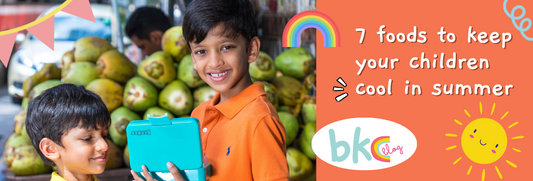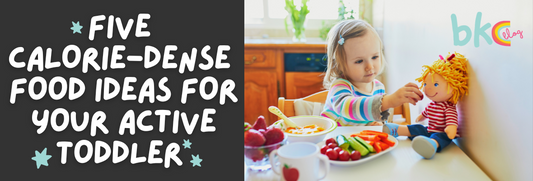Even the youngest of children have a complex, thinking mind that processes feelings and emotions. Being mentally healthy is important for a growing child, as much or perhaps more than it is for an adult. In this article, you will read how parents can provide quality mental health care for their children.

Those parents – who are already dreading their child’s teenage years after seeing how difficult they are before even hitting preadolescence – may not be seeing the world from their little one’s point of view. Yes, parenting can be challenging. But being a child – belonging in the golden age of 0 to preadolescence – is not as easy or carefree as popular culture makes it out to be either.
Mental health is not a term that is often used around children, but is one that urgently requires shedding its stigma status. This is especially important when building a healthy society from the ground up. According to the World Health Organisation, childhood and adolescence are critical stages for mental health owing to the rapid brain development during this phase.
As you read on, you will understand how a healthy mind helps your child realise their full potential and how you can ensure a holistically healthy childhood for them. You will also learn how well-rounded attention to a child’s mind and body can extend to happy adulthood.

Experts Say So
Mental health means the psychological and emotional wellbeing of a person. To be mentally healthy is to be equipped with healthy social skills and to be able to cope with problems as and when they arise. A child is mentally healthy when they are able to get through their day without much difficulty and function well in their surroundings.
Children often have their own anxieties and fears as they go about their daily activities. Examples are, sometimes they might have trouble sitting still, find it difficult to pay attention, or get anxious when meeting people. While these may be developmental phases, if they persist and begin to hinder their day-to-day lives, your child may need intervention.
If the developmental and emotional needs of a child aren’t duly noticed and nurtured early on, there is a high chance that mental health issues can develop into illnesses in adulthood.
Though the science speaks for itself, the ground reality is messed up. In India, the gap between quality mental health care and children who need it is disturbingly wider than the Pacific. This is all the more reason why parents and caregivers need to be critically aware of their child’s upbringing to avoid risk of mental illnesses.

Be Informed
Awareness is key. There is no way around it.
While it isn’t possible to take in every bit of information about the mind, the idea behind awareness is to be open. That way, you won’t be in denial when your child needs you the most.
Get an understanding of the different developmental and emotional milestones and the daily stressors a child might face in everyday life.
Here are some tips on how to be aware of your child’s mental health:
-
Since there is so much misinformation on the internet, rely on credible sources, such as CDC and WHO.
-
Talk to a subject expert (psychologist or psychiatrist).
-
Discuss your child’s behaviours with their paediatrician.
-
If you are the primary caregiver, observe your child’s behaviour closely. If your child goes to school, connect with their teachers regularly to understand how your little one behaves in class.

Being aware helps you do away with the stigma associated with mental health and be the right advocate for your child.
Support Your Child
It is always empowering for a child to have their parents strongly on their side. Here are some ways you can support your child’s mental health:
Get the Chatter-Box On
Have regular one-on-one conversations with your child. It can be when they are helping you prep meals or during their after-school snack time. Make the effort if you haven’t started already. It helps build trust.
Talk to them about their feelings and emotions. You would need to lead with examples such as “Today was a happy day for daddy” or “Mommy is feeling tired because she had so much work in the office.”
Ask them open-ended questions – “How did you feel when you were playing with your friends?” or “What was going through your mind when you screamed at your brother?”.

Listen
Your child might be weaving stories that may take hours to complete; have patience. If you manage to get your child to talk their heart out, that means they trust you.
Now make good on that. Let your child come to you; lend an ear. Consider it a privilege to be a part of their private thoughts and feelings.
Don’t admonish your child when you hear something you don’t like. Try to see the world from their perspective.
Educate & Empower
It is essential that the conversation begins early. Unlike physical health, mind-related topics are complex to explain to kids. But as they grow, your child might find their feelings and emotions quite confusing.
Once they express their frustrations, try to explain why they are feeling that way in an age-appropriate way. For older children, use a practical guide – Looking After Your Mental Health – to explain complex concepts about mental health.

Gentle Parenting is the Way
Gentle parenting is a parenting approach in which you are conscious about your child’s behaviour and reflect on their emotions thereby encouraging compassion and empathy.
For instance, if your child hits you because they are feeling angry or frustrated, your response shouldn’t be to yell at them to stop or punish them for their actions. This is how you should respond: Stay calm. And then say, “Okay, you are going through some strong feelings right now. Let’s sit here and take some deep breaths.” This immediately comforts the child because their feelings aren’t being shoved away.
Once they take their deep breaths, analyse their emotions with them. “You were angry, it’s okay to feel that way. But it isn’t okay to hit someone when you’re feeling angry, okay?” Following which, you can show them ways to express their emotions healthily.

Yes, we know it’s easier said (in this case, written) than done. In the long run, gentle parenting has a positive effect on your child’s mindset. This type of parenting lets them:
-
understand that their feelings are as valid as yours,
-
see the full spectrum of their emotions in natural form, and
-
learn how to deal with difficult situations on their own.
Healthy Expression
Being able to express one’s emotions is cathartic. Studies even show that people who keep their emotions bottled in can have increased blood pressure and be at a greater risk of cardiovascular diseases in the long run.
Same goes for children. Here’s what you can do to encourage your child to express their emotions healthily:
-
Encourage your child to journal.
While journaling has its therapeutic benefits, it helps your child keep track of their moods and feelings. When they are able to jot down their thoughts, your child begins to identify triggers and changes in their behaviour.
-
Pursue hobbies
Having a hobby gives your child a creative outlet to channel their daily stresses. What better way to improve their mood than by pursuing something they love to do.
-
Montessori training
Parents of toddlers and preschoolers can incorporate Montessori principles into daily life. It helps build social trust, self-confidence, and improve the general well-being of your child. Montessori activities are tasks that serve a meaningful purpose. This includes meal prep with parents, helping with laundry, getting dressed on their own, and other self-assuring activities.
You should be on the alert if your child shows negative behavioural changes such as self-harming and hurting other children. If it persists, seek medical intervention.
Home Is a Safe Haven
Children have a sense of belonging at their own home. To secure a happy childhood for your child, make sure your home remains a sanctum sanctorum for your little one.

Below are some do’s and don’ts to provide a safe and positive home environment for your child:
-
When caring for your child, put stressful and negative thoughts out of your mind.
-
Young children may not be able to verbalise their thoughts easily. Make sure you are patient with their needs.
-
Children find it assuring when their caregivers verbalise their affection or praise. An ‘I love you’ or a ‘good job’ goes a long way.
-
When your child fights with their younger sibling, don’t scold them. It will only make it worse. Try gentle parenting: understand why they are acting out and suggest a solution. (Deep breaths!)
-
Set a safe play area for your child.
-
Keep arguments between you and your partner civil. When your kids watch an argument turn violent or ugly, it will cause negative associations in your home.
-
As your child models your behaviour, make a conscious effort to channel your stress positively.
-
Encourage healthy eating habits.
-
Ensure your child gets regular exercise. This could also be a time of bonding with them.
-
Make sure your child has a good relationship with other people – such as siblings, grandparents, or extended family members – in the house.
-
Your child’s emotions and thoughts should be validated at home, especially by the older members of the family.
-
Make sure none of the family members talk negatively about your child even when they aren’t present with them.
-
Encourage your child to do chores.

Taking care of one’s mental health starts from a young age. As important as caring for your child’s physical needs, it is necessary to train your child to take care of their mental needs.
To sum it up, a safe and happy childhood equals a mentally healthy child, which in the long run equals a happy adult.





